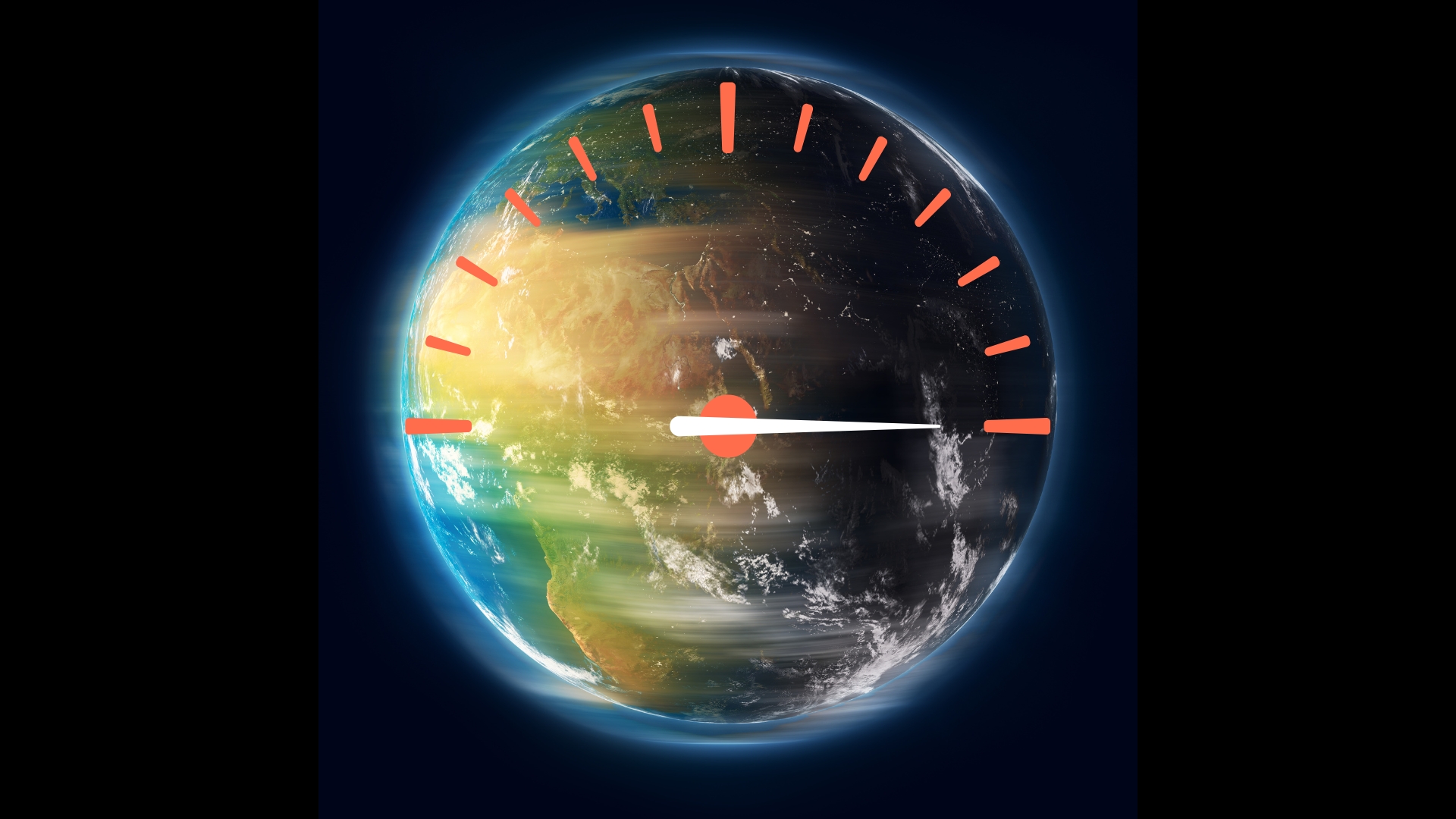Earth’s Pace Picks Up What Scientists Are Noticing
Scientists discover Earth is starting to spin faster, and that finding is shaking up global scientific communities. For decades, Earth’s rotation has been gradually slowing due to natural factors like the moon’s gravitational pull. But now, researchers are seeing a strange reversal: Earth is unexpectedly picking up speed.
Several days in 2024 and 2025, including July 9 and July 22, were recorded to be shorter by more than a millisecond. August 5 is predicted to be even faster, losing nearly 1.5 milliseconds a tiny difference for humans, but a significant one for timekeeping systems.
Scientists Discover Earth Is Starting to Spin Faster What’s Changing?
A full day on Earth is measured as 86,400 seconds exactly 24 hours. But that number isn’t fixed. Many factors can influence how long a day actually lasts, such as:
- The gravitational tug from the moon and the sun
- The distribution of Earth’s mass, especially due to melting ice
- Changes in the movement of Earth’s molten core
- Atmospheric pressure shifts and earthquakes
These factors combine in complex ways, making Earth spin slightly faster or slower at different times. Recently, the balance has shifted toward a speed-up a pattern first noticed in 2020 and continuing to raise eyebrows among physicists and timekeepers.
Why Scientists Discover Earth Is Starting to Spin Faster Than Predicted
The implications of Earth’s faster spin go far beyond astronomy. Precise timekeeping underpins global technologies from GPS and communication networks to banking systems and air traffic control.
To keep everything in sync, scientists use Coordinated Universal Time (UTC), which is calculated using more than 400 atomic clocks worldwide. When Earth’s spin slows, leap seconds are occasionally added to align atomic time with astronomical time. Since 1972, 27 such leap seconds have been added.


But what happens when the Earth spins faster than the atomic clocks expect?
For the first time in history, scientists are now considering doing the opposite: introducing a “negative leap second” subtracting one second from the global clock. This adjustment has never been done before, and experts warn it could cause serious software problems.
Why This Matters to Everyone Not Just Scientists
While a millisecond here or there may seem meaningless in daily life, that tiny difference matters enormously in digital systems that rely on perfect timing. Even a one-second change can disrupt:
- Computer servers and databases
- Satellite communications
- Flight schedules
- Financial transactions
- Energy grids and large telescopes
The introduction of a negative leap second could expose new vulnerabilities, especially since most software has never been tested for this type of time adjustment.
When Scientists Discover Earth Is Starting to Spin Faster, Timekeeping Faces a Crisis
One of the lesser-known influences on Earth’s rotation is climate change. As glaciers and ice sheets melt particularly in Greenland and Antarctica the redistribution of water around the globe alters the planet’s mass balance. This can slow Earth’s spin and potentially offset the recent speed-up.
So, while the planet is spinning faster now, scientists can’t say for sure whether the trend will continue or reverse in the coming years. It’s a delicate tug-of-war between natural celestial forces and human-driven climate effects. Also Read: Try This Way to Bring Glowing Skin :1 Natural Drink Experts Swear
Will Time Itself Change by 2035?
Current estimates suggest there’s around a 30–40% chance that a negative leap second might be needed by 2035. Some even suggest it could come sooner if current acceleration trends continue.
However, not all experts support the idea. Several scientists warn that leap seconds especially negative ones are too disruptive and outdated in today’s tech-heavy world. There are growing discussions about abolishing leap seconds altogether in favor of a more stable, long-term approach to timekeeping.
Conclusion
Scientists discover Earth is starting to spin faster, and the effects of that small change may ripple through every corner of modern life. While most people won’t feel the missing milliseconds, technology certainly will. Whether we adopt a negative leap second or move toward a new timekeeping standard, one thing is clear: the Earth is full of surprises and even time itself isn’t immune to change.

